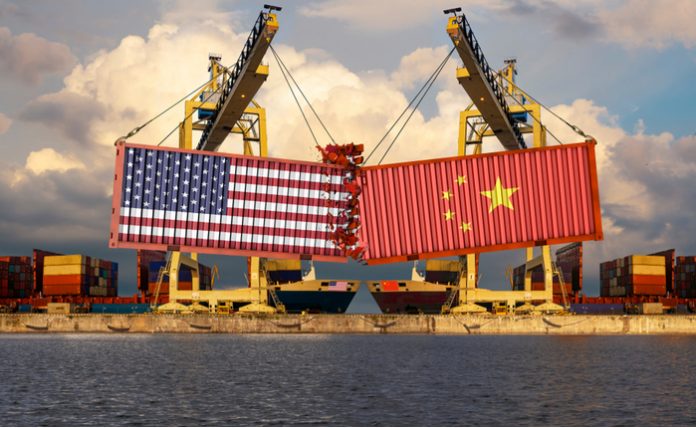Many investors looking at the onslaught of news coming out of the US/China trade conflict know intuitively that this kind of thing is bad for business – but news this morning from the tech sector really brings home the point.
A story published by Emily McCormick this morning shows how concerns and negative projections from chipmaker Broadcom (AVGO) have brought down that sector, driving market losses.
“U.S. stocks tracked declines in overseas markets after weak data out of China stoked fears of an economic slowdown in the world’s second-largest economy. Chipmakers broadly declined following a disappointing outlook from Broadcom,” McCormick writes. “The S&P 500 … fell 0.35%, or 10.09 points, as of 11:18 a.m. ET. The Dow…declined 0.28%, or 74.22 points, while the Nasdaq … fell 0.67%, or 52.32 points.”
Here’s the quote from Broadcom CEO Hock Tran:
“With respect to semiconductors, it is clear that the U.S.-China trade conflict including the Huawei export ban is creating economic and political uncertainty and reducing visibility for global OEM [original equipment manufacturer] customers … As a result, demand volatility has increased and our customers are actively reducing inventory levels to manage risk.”
Shares of Broadcom fell over 8%.
It doesn’t take much to draw these lines together – American and Chinese tech companies work in a global economy. Any weakness reported on the part of either of these parties brings down related tech stocks and leads to general market weakening. For instance, these companies sell to each other.
Some deliver materials or discrete manufacturing components to others. The global economy is just too intertwined to facilitate targeted protectionism – at least, that’s what these reports seem to be suggesting.
Just take the idea of productivity – global productivity is tied to global gains. Lower productivity driven by the trade tensions results in less gains.
All of this is abundantly simple, but it’s very clear with today’s report that magical thinking will not be able to erase the pain and pressure of US/China trade tensions.
For example, McCormick also reports Broadcom’s disclosure that sales to Chinese firm Huawei represent $900 million in revenue or 4.3% of revenue for 2018.
The idea that protectionism works in a global economy just simply doesn’t bear out, and we’re seeing that in play today. Investors are warned to act accordingly.










